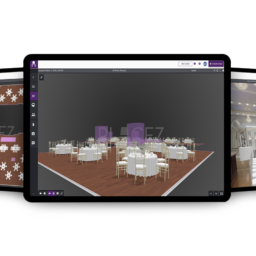Planning an event involves juggling many responsibilities, with budgeting being one of the most crucial tasks. Whether you’re an event coordinator, manager, or planner, a well-structured budget can be the difference between a successful event and a financial disaster. This blog post will guide you through the intricacies of event budgeting, ensuring you stay on track without sacrificing quality.
Why Budgeting Matters for Events
Effective budgeting is vital for event professionals. It helps manage resources efficiently, avoid unexpected expenses, and ensure the event’s success. Mastering budgeting allows you to allocate funds wisely and deliver memorable experiences without breaking the bank.
Setting Clear Objectives
Before you start crunching numbers, define the event’s objectives. Are you aiming to host a corporate conference, a wedding, or a community fundraiser? Clear goals will help you prioritize expenses and allocate funds where they matter most.
Understanding Your Audience
Knowing your audience is crucial for effective budgeting. Consider their preferences and expectations. For example, a corporate event might require a more formal setting than a casual community gathering. Tailoring your budget to your audience ensures you meet their needs while staying within financial limits.
Creating a Detailed Budget Plan
A comprehensive budget plan is the foundation of successful event planning. List all potential expenses, including venue rental, catering, entertainment, transportation, and marketing. Break each category into smaller items to clearly understand where the money will go.
Prioritizing Essential Expenses
Not all expenses are created equal. Identify the must-haves for your event, such as the venue and catering, and allocate funds accordingly. Once the essentials are covered, you can allocate any remaining budget to additional features that enhance the event experience.
Finding Cost-Effective Venues
Venue selection is often one of the most significant expenses in event planning. Look for cost-effective options that still offer the ambiance and facilities you need. Consider non-traditional venues like parks, community centers, or even local businesses that might sponsor your event in exchange for publicity.
Efficient Catering Solutions
Catering can quickly eat up your budget if not managed carefully. Work with reputable caterers who offer quality food at reasonable prices. Explore buffet-style or food station options, which can be more cost-effective than plated meals. Don’t forget to account for dietary restrictions and preferences to ensure all guests are satisfied.
Leveraging Technology for Savings
Technology can be a budget-friendly ally in event planning. Use online registration, ticketing, and communication tools to reduce administrative costs. Virtual events have gained popularity, offering a cost-effective alternative to in-person gatherings while reaching a broader audience.
Negotiating with Vendors
Practical negotiation skills can save you a significant amount of money. Build strong relationships with vendors and negotiate contracts to get the best deals. Don’t hesitate to ask for discounts, especially if you’re a repeat customer or bringing them substantial business.
Maximizing Marketing Impact
Marketing is essential to attract attendees, but it doesn’t have to drain your budget. Utilize social media platforms, email marketing, and free publicity opportunities to spread the word. Collaborate with influencers or partners who can help promote your event without additional costs.
DIY Decor and Entertainment
Consider DIY options for decor and entertainment to save money. Get creative with decorations by using affordable materials or repurposing items you already have. Encourage local talent to perform at your event, providing them exposure while reducing entertainment costs.
Monitoring and Adjusting the Budget
Budgeting is an ongoing process that requires constant monitoring and adjustments. To avoid overspending, keep track of expenses in real time. If you notice any deviations from the budget, make necessary adjustments promptly to stay on course.
Handling Unexpected Costs
No matter how meticulously you plan, unexpected costs can arise. Set aside a contingency fund of around 10% of your budget to cover unforeseen expenses. This safety net ensures your event runs smoothly even if surprises pop up.
Evaluating Post-Event Finances
After the event, evaluate your finances. Compare actual expenses to your budget and analyze any discrepancies. This analysis will help you learn from the experience and improve your budgeting skills for future events.
Building Relationships with Sponsors
Sponsorship can significantly boost your event budget. Build strong relationships with potential sponsors who align with your event’s goals and audience. Offer attractive sponsorship packages that provide value to sponsors while helping you offset costs.
Conclusion
Budgeting for events doesn’t mean compromising on quality. By setting clear objectives, understanding your audience, and prioritizing essential expenses, you can create a memorable event within your financial limits. Use cost-effective solutions, leverage technology, and build strong vendor relationships to maximize your budget’s impact. Monitor and adjust your budget throughout the planning process, and always be prepared for unexpected costs. With these strategies, you’ll master event budgeting and deliver successful, high-quality events every time.














